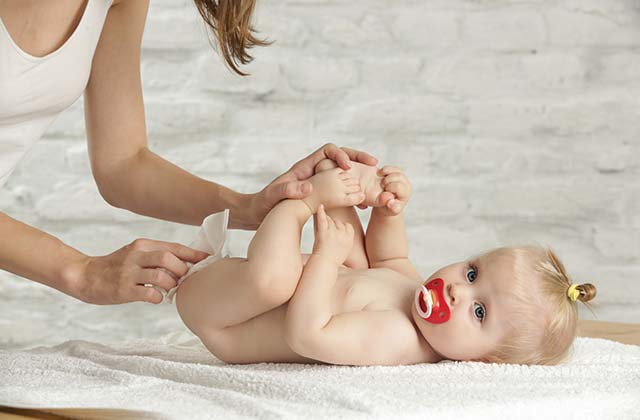Well, of course you will! That’s what mothers do! But how much are you willing to put your baby first?
We’re all pretty good at persuading ourselves that what’s comfortable and pleasant is good for us, even if, deep down, we know that’s not quite right. Would you be willing to look at what’s best for your baby and get truly fit to give her the best start in life?
Before you decide, let’s look at what’s really best for you both.
There’s plenty of dietary advice for pregnant women, and you should certainly read what several experts say. Most of it majors on three areas:
- eating for two and getting good nutrition;
- avoiding drugs and poisons; and
- fixing typical pregnancy deficiencies.
All of these are important. But most dietary advice is given on the assumption that if you ask too much from people, they’ll be put off and just ignore you. That includes dietary advice for pregnancy.
This means that, for the best of practical reasons, regular health advice is scaled back to the acceptable for the average mom-to-be, an achievable target for the “Well, maybe I’ll try it” mom, rather than being the best possible — and surely YOU want the best advice? I want to go further than what you’ll see in the health sheets, baby books and magazines. Just to give one example: advice about fats boils down to, “Eat less saturated fat. Eat some oily fish.” That’s fine — it’s possible for any mom to do, too. But it leaves you with only a slightly less unhealthy body than most of us have, and it doesn’t even mention the one crucial fat fact that can dramatically help your baby! You’ll see that fact as you read on.
I think you’ll find that going that bit further towards excellent nutrition for your baby makes good sense — and it’s achievable, too!
The Best for Baby
Let’s begin at base. Most people in the West today eat a diet high in refined starches and sugar, salt and saturated and trans-fats. Our food is subtly laced with poisonous preservatives, flavorings and colors. We eat far too little fibre and we’re permanently dehydrated. We are deficient in between 6 and 18 of the 47 essential nutrients. We eat far too much food overall, we take too little exercise and we have the wrong muscles controlling our skeletal structure. In short, we live on treats and junk food, and cripple our bodies with inactivity and poor posture. That’s a far cry from previous generations. And it affects our health — badly. We’re a physically sick culture.
Most people are aware of this, and many make some attempt to do better. A very few are truly healthy — I hope this includes you, but it’s unlikely because so very few are truly fit. It’s sensible that the advice we are given by experts is aimed at the unhealthy majority, hoping to persuade them to make a little effort towards better health for baby’s sake. But surely you want more than this minimum help for your baby? Leaflets and books go further along the road to real health than the national campaigns, but few go far enough to make the crucial difference. Yet it’s really quite simple!
Bad Influences
National health agencies are well aware of this problem of poor public health, and you can’t miss the campaigns which try to encourage people to get healthier, nor the compulsory food packet labeling which is intended to give us the information to make informed choices despite manufacturers’ attempts to confuse. But all of this isn’t enough, because food advertising is a powerful influence none of us can avoid, and clean, healthy food is unprofitable to advertise in the mass market.
We’re constantly bombarded with advertising encouraging us to buy manufactured food which is — essentially — unhealthy junk. Deep down, most of us know it, but such advertising is hard to resist, and you need good evidence and a steely will to buck the trend.
I won’t try. Instead, I’ll give you some simple, basic advice to improve your health way beyond what most expectant mothers achieve, and you can take this forward later to become as healthy as you want to. It’s your decision how far you want to go to be truly healthy for your baby, and I’ll explain enough to help you make sensible choices which you’ll be comfortable with.
The Five Simple Fixes for Baby’s Health (and Yours Too!)
I’m assuming that you eat a typical Western diet. If you eat better than that, you’ll know, and you may be doing all of these five healthy things. If you are: congratulations! Your baby has a great start in life!
- Drink water. Most people in the West are dehydrated most of the time, and it puts a huge strain on your system, trying to clear out your body’s wastes with too little water. Especially, if you can’t clear the wastes from your body well, these accumulate in baby’s bloodstream as well as yours. A half ounce of water a day per pound of your body weight is about right, drunk fairly evenly across the daytime.
- Know those all-in-one vitamin-and-mineral one-a-day pills? Do it! On a normal Western diet you’re likely to be deficient in several essential nutrients, and this is a quick and safe fix to make sure you have the government recommended minimum. Get a tub of the cheapest and swallow one a day. This is a kind of backstop therapy, and if you aren’t deficient in any particular nutrient, the extra you get from the pill is harmless. If you have more important deficiencies — iron is common because you baby steals your iron to grow new blood — you’ll find out from your regular tests at the antenatal clinic.
- One vital nutrient that a Western, processed-food diet deprives you of is the essential fatty acid Alpha Linolenic Acid. It’s deliberately removed from your food to improve shelf life in the supermarket. For baby growth it really is vital, so you’ll be glad to know that baby will hook in all of yours that’s going free! Then YOU might get sick. Most of us don’t get enough ALA anyway, and you can’t make it in your body like you can most fatty acids. Fix this by eating a tablespoonful of flax oil a day, straight or mixed in with your food any way you like. Health stores sell it; so do a lot of supermarkets. Oh, and eating wild caught oily fish a couple of times a week helps even more.
- Fresh vegetables and fruit. Of course. But will you? It’s no good using them as a garnish in a fat-and-starch rich meal or with a huge steak. In fact, you really need fresh vegetables to be half of your total food by weight, plus fruit. You’ll have to think about what you’re eating to get this right. And the vegetables I’m talking about are the low-starch kind, the red, orange, yellow and especially green ones. Not, for example, potatoes. Eating half your food as vegetables is the best way to get micro-nutrients, avoid the dreaded constipation and give you a good buffer against morning sickness. And it’s impossible to get overweight on a diet like this — a real bonus!
- To help all these simple fixes to work, you ought to exercise sensibly. I won’t say any more; your clinic will give you good advice, and you should follow it. It’s important.
Disclaimer (Sort Of)
So OK, I’m a man; I don’t really know what it’s like to carry a baby. But I’ve been through it all twice at second hand. It’s the nearest I’ll get, and it taught us both a lot, particularly about patience! My excuse is that good diet and exercise for pregnancy isn’t a lot different to what everyone ought to be doing all the time anyway.
I reckon your pregnancy is an ideal, well-motivated time for you to make positive steps into good health. You’ve got someone else to care for now, whose well-being is totally dependent on how you look after yourself. Your new, healthy habits can carry you and your family forward for the next few decades. And when your kids are old enough, your positive training will set them up to pass it on to their kids.


